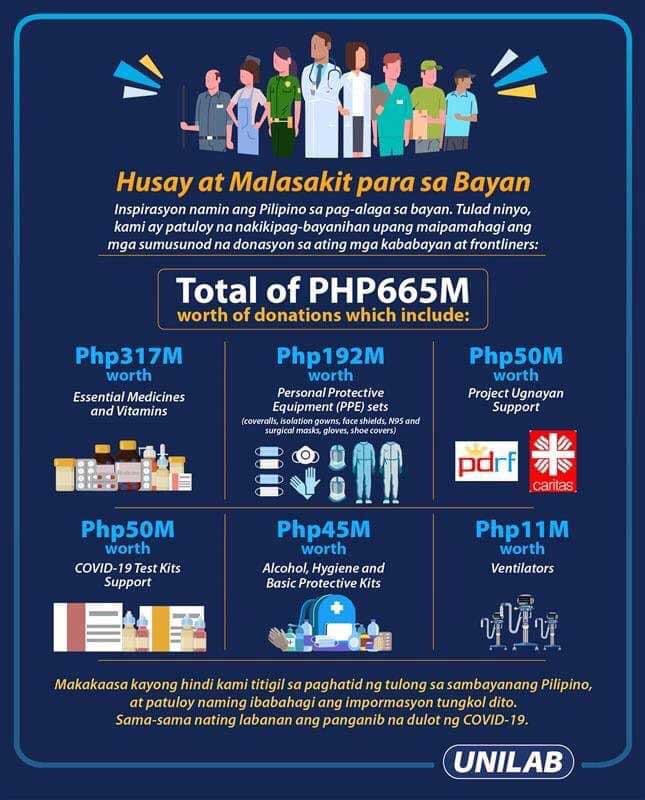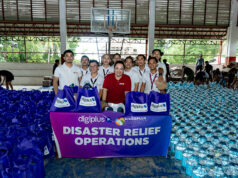
Unilab Inc. has quietly released some P665 million worth of donations to its partner-institutions, with the amount seen to surge to a billion pesos in the next few weeks as the Campos Hess-led Filipino pharmaceutical firm commits to continue sharing its resources for the country’s COVID-19 response.
In its recent Facebook advisory for its stakeholders, Unilab updated its employees and partners on the company’s COVID-19 initiatives, anchored on its core corporate values of Husay (Excellence in execution) and Malasakit (Compassion).
Its Facebook post showed that the country’s leading pharmaceutical and healthcare company already delivered to its partners P317 million worth of essential medicines and vitamins; personal protective equipment (PPE) sets which consist of coveralls, isolation gowns, face shields, N95 and surgical masks, gloves and shoe covers worth P192 million; alcohol, hygiene and basic protective kits worth P45 million; support for COVID-19 test kit development worth P50 million; and P11 million worth of ventilators.
It also supported the fundraising drives of civil society groups for the underprivileged communities with donations worth P50 million.
Netizens cited Unilab for working with government agencies, local government units (LGUs), non-government organizations and the private sector even without getting media attention, in keeping with the company’s low-key policy for its philanthropic works as espoused by its founders.
It also demonstrated its excellence in execution by closely coordinating with the Department of Health and the COVID-19 Inter-Agency Task Force (IATF) in identifying the types of critical support required by priority recipients, especially the frontliners and vulnerable sectors. Currently, more than 400 hospitals nationwide have already received support from the company.
By partnering with the Department of Science and Technology (DOST), University of the Philippines-National Institutes of Health (UP-NIH) and other government and private organizations, Unilab is also working on the possibility of significant increase in the country’s capacity to do testing, which is an important component of the drive to contain the spread of COVID-19.



